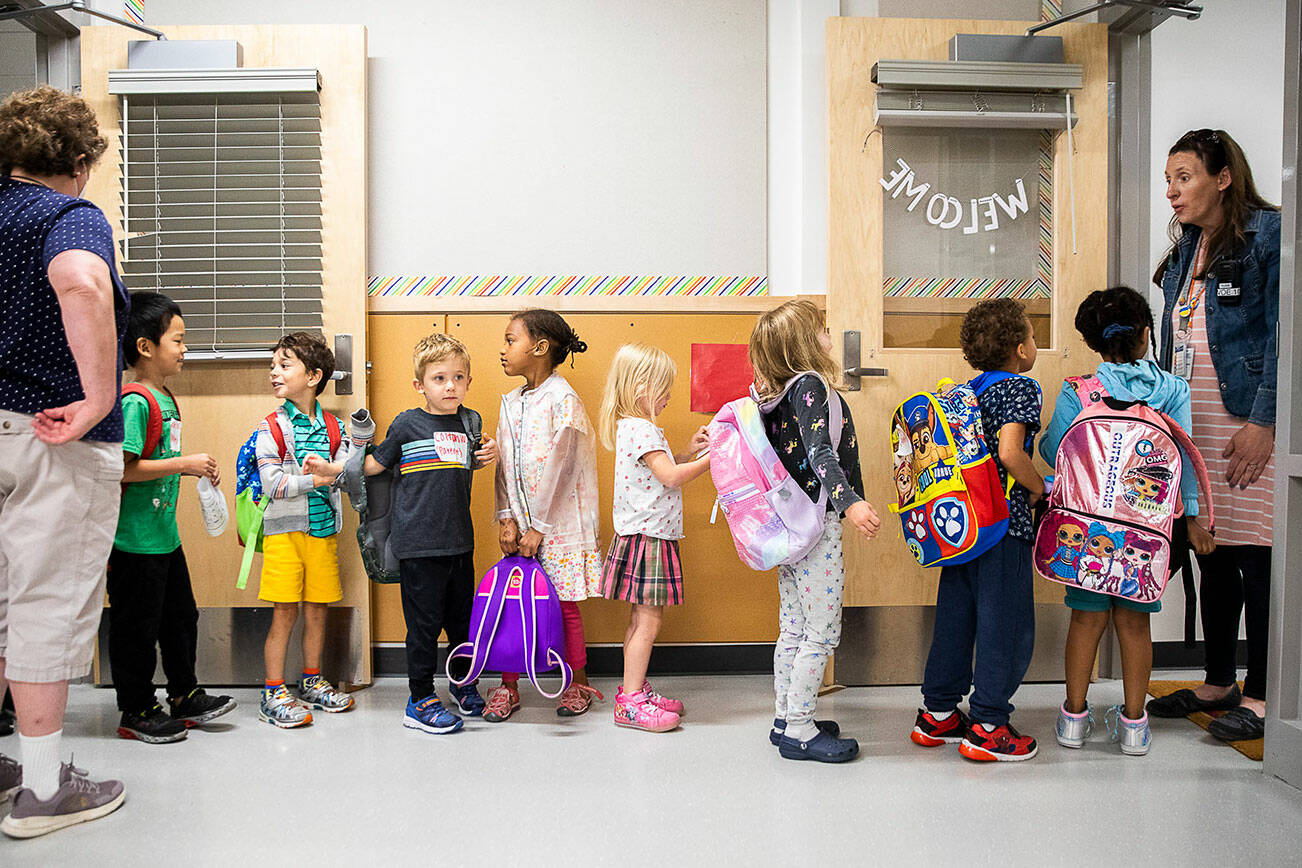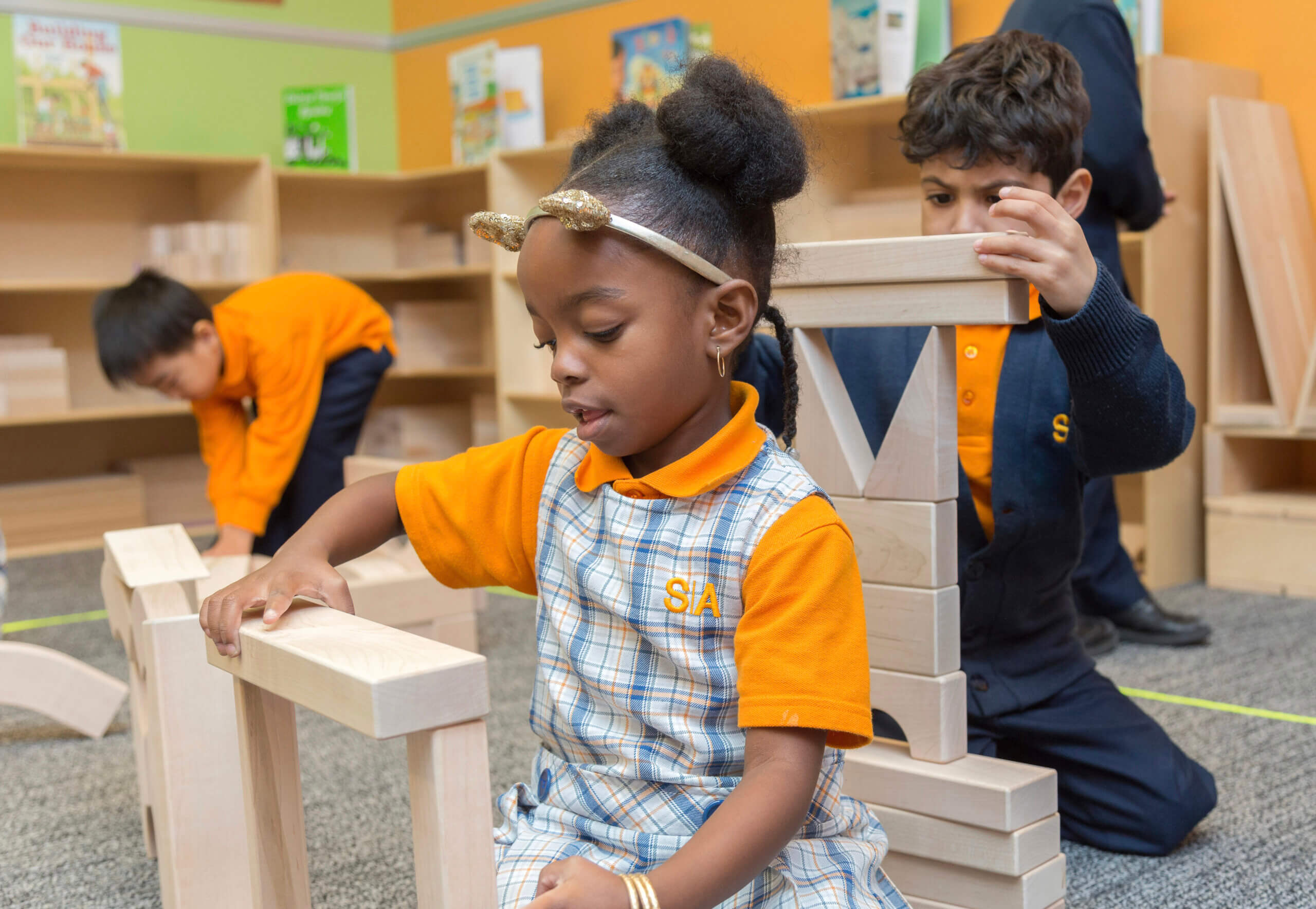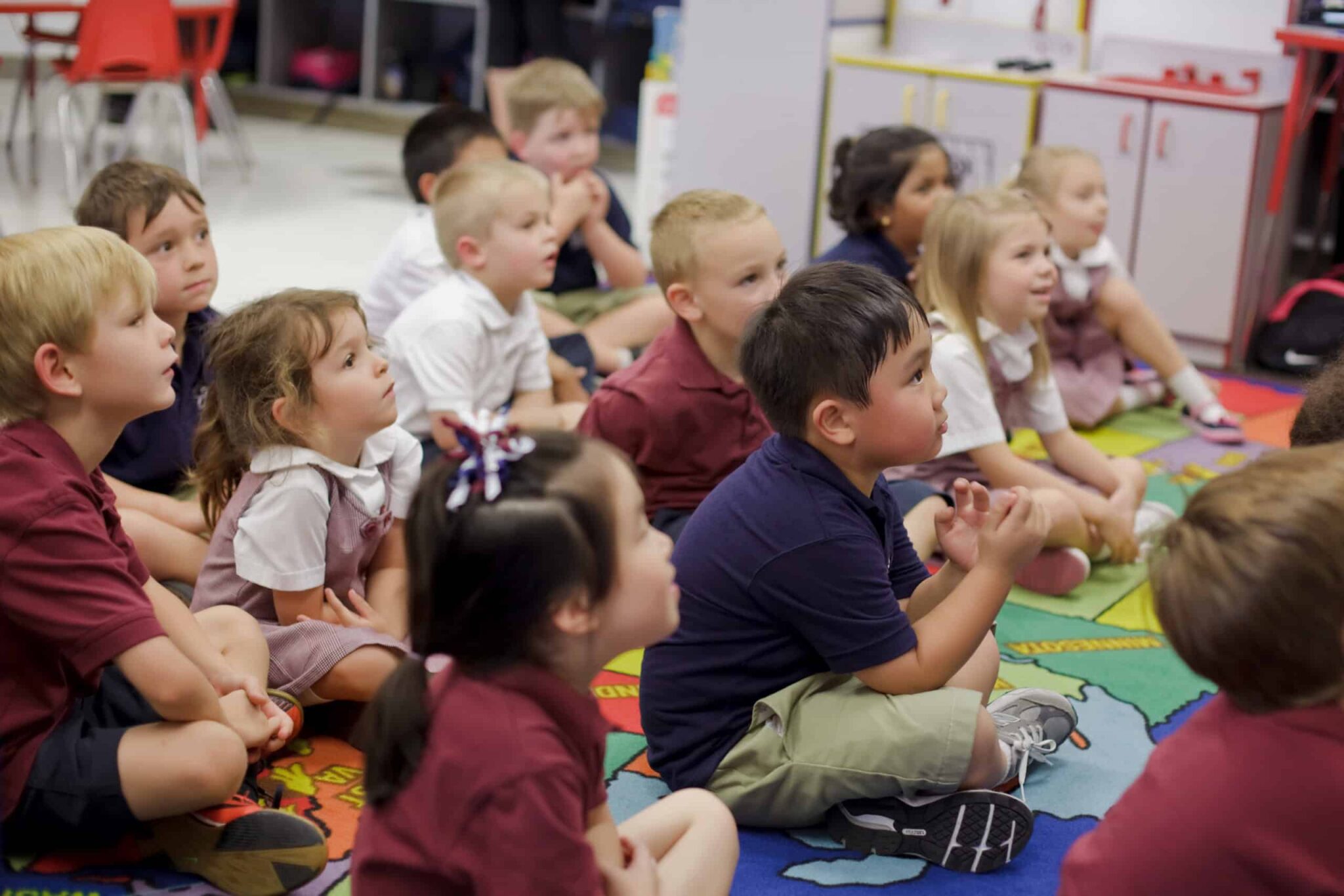How Kindergarten activities nurture early learning and social skills
Elementary school: A Comprehensive Overview to Programs That Foster Learning and Growth
Elementary school plays an essential role in forming a kid's future. It integrates vital understanding with social-emotional development. Various programs and methods are employed to deal with diverse demands. The integration of technology and after-school activities enhances the academic experience. Understanding these components is important for promoting development. What certain approaches can schools apply to ensure every child grows in this fundamental stage?
Recognizing the Importance of Early Education And Learning
While many recognize the value of education at any type of stage, recognizing the importance of early education is fundamental for establishing a solid foundation for lifelong knowing. Research study shows that very early youth experiences profoundly affect social and cognitive development. Throughout these developmental years, kids are specifically receptive to finding out, making it important to offer stimulating and nurturing atmospheres. Quality early education programs promote vital skills such as communication, analytical, and psychological policy.
Furthermore, early education can link spaces in socio-economic variations, guaranteeing all kids have accessibility to the sources necessary for success. By emphasizing play-based discovering and interactive tasks, very early education cultivates curiosity and a love for knowing. In addition, it sustains the advancement of crucial believing abilities that are essential in later scholastic searches. Eventually, purchasing early education and learning returns significant long-lasting benefits, forming individuals who are much better furnished for the challenges of an increasingly complicated globe.
Conventional Educational Program: A Time-Tested Technique
Typical educational programs have long prioritized core topics, giving trainees with crucial knowledge in areas such as language, mathematics, and scientific research arts. This organized knowing environment promotes self-control and consistency, enabling students to concentrate on fundamental abilities. Additionally, teacher-led direction plays an important role in assisting students through the educational program, making sure that discovering objectives are satisfied effectively.

Core Subjects Focus
Numerous academic viewpoints have arised over the years, the focus on core topics within traditional curricula continues to be a keystone of quality institution education. These core subjects normally include mathematics, reading, composing, scientific research, and social researches, developing the fundamental expertise necessary for pupil development. By concentrating on these techniques, traditional curricula aim to gear up trainees with important thinking skills and a versatile understanding of the world. This structured strategy fosters important literacy and numeracy abilities, making it possible for students to engage meaningfully with more complicated principles later in their education. Moreover, the proficiency of core subjects is frequently seen as a crucial sign of scholastic success, further strengthening their relevance in quality college finding out environments, and making sure a regular instructional standard throughout diverse populations.
Structured Understanding Setting
An organized knowing setting is important for promoting scholastic development in elementary school settings, as it provides a constant structure within which trainees can flourish. Traditional educational programs typically emphasize clear expectations, timetables, and routines, allowing trainees to establish a sense of protection and concentrate on their knowing. This predictability assists reduce diversions and advertises self-control, allowing pupils to engage a lot more successfully with academic content. Furthermore, a structured environment promotes the gradual introduction of intricate ideas, making certain that fundamental abilities are understood prior to proceeding. Such a strategy not just supports cognitive development but additionally supports social abilities, as students discover to navigate their duties within a defined system. Ultimately, a structured knowing environment prepares for lifelong knowing routines.
Teacher-Led Direction
Teacher-led instruction continues to be a foundation of standard educational programs, offering a reliable and direct methods of delivering instructional content. This technique emphasizes the educator's function as an authority number and facilitator of expertise, guiding pupils through structured lessons and assessments. With a concentrate on direct guideline, teachers can make clear complex concepts, ensuring that pupils understand foundational abilities essential for future knowing. This method commonly includes the use of textbooks, talks, and explicit training strategies, which have been shown to produce measurable scholastic outcomes. Furthermore, teacher-led direction cultivates a regimented knowing atmosphere, permitting consistent tracking of pupil progression. Despite the emergence of alternative instructional techniques, the effectiveness of teacher-led instruction remains to be verified by its long-standing presence in instructional setups.

Innovative Technology-Driven Knowing Programs
Various grade schools are accepting innovative technology-driven discovering programs to boost instructional results and engage pupils in meaningful methods. These programs leverage tools such as interactive software, digital fact, and flexible understanding platforms, enabling customized discovering experiences tailored to specific student needs. By incorporating modern technology right into the curriculum, educators can cultivate partnership and important thinking skills amongst trainees.
As an example, coding and robotics classes motivate problem-solving and creativity, while on the internet sources supply access to a vast array of info. Furthermore, gamified understanding applications make complex topics a lot more friendly, motivating students to participate actively in their education.
Teachers additionally profit from technology-driven programs through information analytics, which permit real-time assessments of trainee performance. This allows them to adjust their training techniques immediately. In general, these cutting-edge programs are transforming typical instructional methods, preparing pupils for a future where digital proficiency is necessary.
Extracurricular Tasks for Holistic Advancement
Incorporating innovation into the academic landscape has opened brand-new methods for pupil involvement, but alternative advancement prolongs past the classroom. After-school activities play a vital duty in cultivating well-shaped growth among elementary school pupils. These tasks, ranging from arts and sports to clubs and volunteering, give opportunities for youngsters to explore their rate of interests and establish crucial life abilities.

Engagement in sports motivates teamwork, discipline, and physical fitness, while imaginative quests stimulate imagination and self-expression. Academic clubs promote critical reasoning and partnership, permitting students to use class understanding in real-world contexts. Offering instills a feeling of neighborhood and social obligation, improving trainees' understanding of diverse point of views.
Social-Emotional Discovering: Building Resilience and Compassion
While scholastic success is essential, social-emotional discovering (SEL) plays an essential duty in nurturing resilience and empathy in elementary school Going Here students. SEL programs intend to create important abilities such as self-awareness, emotional regulation, and interpersonal communication, which are essential for trainees' overall health. By participating in activities that advertise understanding of emotions and social dynamics, trainees discover to browse challenges and build healthy and balanced partnerships.
Including SEL right into the curriculum cultivates a supportive setting where youngsters can reveal their sensations and discover to feel sorry for others. This method not just improves psychological knowledge however also helps students manage troubles, promoting strength. Research study shows that trainees that participate next in SEL initiatives demonstrate boosted habits, scholastic performance, and favorable peer interactions. As a result, integrating social-emotional knowing right into grade school programs is crucial for equipping students with the abilities necessary for individual and scholastic success, inevitably forming caring and resilient people.
Special Education Programs: Supporting Diverse Learners
Unique education programs play an important role in supporting diverse learners within grade institution settings. Via individualized education and learning strategies (IEPs) and comprehensive class strategies, these programs aim to meet the special requirements of each student. Efficient implementation fosters a setting where all kids can prosper academically and socially.
Individualized Education And Learning Plans
Embellished Education And Learning Plans (IEPs) function as important tools in the area of special education and learning, made to sustain diverse learners with one-of-a-kind demands. These legitimately binding documents lay out specific academic objectives, holiday accommodations, and solutions customized to each trainee. Created collaboratively by instructors, specialists, and moms and dads, IEPs guarantee that pupils with impairments have accessibility to a free appropriate public education and learning (FAPE) This customized technique promotes significant progress by addressing specific staminas and obstacles. Normal assessments and updates to the IEP facilitate ongoing modifications, assuring that instructional strategies stay efficient. Eventually, IEPs empower students by cultivating an inclusive discovering setting that identifies and values their uniqueness, allowing them to prosper academically and socially.
Inclusive Class Methods
Developing a comprehensive classroom atmosphere is necessary for successfully sustaining diverse learners, as it cultivates partnership and engagement among pupils of varying abilities (Kindergarten). Comprehensive classroom methods entail differentiated direction, where instructors adjust lessons to meet specific needs. This may include different mentor approaches, such as visual aids, hands-on activities, and innovation assimilation. In addition, promoting wikipedia reference peer assistance via cooperative knowing teams motivates trainees to help one another, enhancing social abilities and compassion. Using global design concepts ensures that all assessments and products come. Educators need to also apply clear expectations and regular routines to produce a foreseeable environment. By prioritizing inclusivity, educators can grow a favorable environment that values diversity and encourages every trainee to grow academically and socially
Parental Participation: Enhancing the Educational Experience
While lots of elements add to a child's academic success, adult participation sticks out as a vital aspect in improving the general understanding experience. Research study indicates that children whose moms and dads proactively take part in their education and learning have a tendency to carry out better academically and show boosted actions in institution. This involvement can take different forms, including attending parent-teacher seminars, volunteering in class, or supporting homework routines.
Efficient communication in between moms and dads and teachers promotes a collaborative atmosphere that profits students. When instructors and parents interact, they can recognize and deal with difficulties a lot more swiftly and properly. Additionally, parental assistance encourages youngsters to worth education, instilling a growth attitude that advertises lifelong knowing.
Often Asked Concerns
Just How Can I Select the Right Quality School for My Kid?
To choose the right quality college, parents should analyze academic performance, extracurricular offerings, instructor qualifications, college culture, and place. Going to colleges and looking for feedback from other parents can even more help in making a notified decision.
What Are the Prices Connected With Elementary School Programs?
The expenses related to elementary school programs differ widely, including tuition fees, products, after-school activities, and transport. Families need to likewise take into consideration added expenses such as attires and potential fundraising payments for enhanced educational experiences.
Exactly How Do Quality Schools Assess Student Development and Performance?
Quality schools assess pupil development and efficiency through a mix of standardized examinations, educator analyses, classroom participation, and project-based projects. Kindergarten. These approaches provide insights into specific discovering, skill development, and overall academic accomplishment
Are There Options for Homeschooling Within Conventional Elementary School Frameworks?
Yes, numerous typical elementary school supply options for homeschooling through crossbreed programs, enabling students to discover in the house while taking part in choose institution activities or courses, supplying adaptability and personalized education within an organized framework.
What Is the Role of Educators in Fostering Trainee Creative Thinking?
Teachers play an essential duty in cultivating trainee creativity by motivating exploration, supplying varied products, and developing a risk-free atmosphere for expression. Their assistance inspires pupils to think critically and establish cutting-edge concepts with collaborative discovering experiences.
A structured knowing environment is crucial for cultivating academic development in quality college settings, as it provides a consistent framework within which pupils can prosper. With a focus on straight instruction, instructors can make clear intricate ideas, making certain that students comprehend foundational abilities important for future understanding. In enhancement, teacher-led instruction cultivates a regimented learning atmosphere, enabling for constant monitoring of student progress. Various grade schools are welcoming ingenious technology-driven knowing programs to improve educational outcomes and engage students in meaningful ways. While academic accomplishment is vital, social-emotional learning (SEL) plays a crucial role in nurturing resilience and compassion in quality college students.